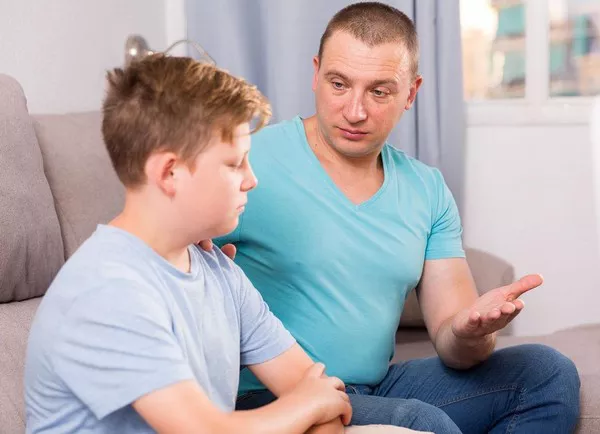Friendship, a bond forged in the fires of shared experiences and mutual trust, holds the power to enrich our lives in profound ways. However, when conflicts arise and friendships falter, navigating the path to reconciliation can be fraught with uncertainty and emotional turmoil. This article explores the complexities of communicating with an ex-best friend, offering insights and guidance on how to navigate this delicate process with empathy, authenticity, and grace.
Acknowledging the Importance of Friendship
Friendship is a cornerstone of human connection—a source of joy, support, and companionship that enriches our lives immeasurably. While relationships may evolve and change over time, the bonds of friendship endure, leaving an indelible mark on our hearts and souls. Ex-best friends occupy a unique place in our lives, serving as witnesses to our triumphs and tribulations, our joys and sorrows. Acknowledging the significance of the friendship that once was is the first step toward initiating a conversation with your ex-best friend, paving the way for open and honest communication.
Expressing Genuine Concern and Care
Approaching your ex-best friend with genuine concern and care sets the tone for a constructive and meaningful conversation. Start by expressing your desire to reconnect and address any unresolved issues that may have led to the breakdown of the friendship. Acknowledge any mistakes or misunderstandings on your part, and express remorse for any pain or hurt that may have been caused. By demonstrating empathy and humility, you lay the groundwork for a compassionate and respectful exchange that honors the friendship that once was.
Sharing Fond Memories and Appreciation
Reflecting on the positive aspects of your friendship and sharing fond memories can help to soften barriers and foster a sense of connection and nostalgia. Recall shared experiences, inside jokes, and moments of laughter and joy that defined your friendship. Express appreciation for the role your ex-best friend played in your life and the impact they had on shaping the person you are today. By highlighting the value and significance of the friendship, you affirm the bond that once existed and lay the foundation for reconciliation.
Listening with Empathy and Understanding
Effective communication is a two-way street, requiring active listening and empathy on both sides. Approach the conversation with an open mind and a willingness to listen to your ex-best friend’s perspective without judgment or defensiveness. Validate their feelings and experiences, and seek to understand the reasons behind their actions and decisions. By demonstrating empathy and understanding, you create a safe space for your ex-best friend to express themselves authentically and openly, fostering mutual respect and trust.
Apologizing Sincerely and Taking Responsibility
Apologizing sincerely for any past wrongdoings or hurtful actions is a crucial step toward reconciliation. Take responsibility for your part in the breakdown of the friendship and express genuine remorse for any pain or hurt that may have been caused. Avoid making excuses or shifting blame, and instead focus on acknowledging the impact of your actions and demonstrating a sincere commitment to making amends. By offering a heartfelt apology, you show your ex-best friend that you value their feelings and are willing to take concrete steps toward rebuilding trust and repairing the friendship.
Clarifying Boundaries and Expectations
Establishing clear boundaries and expectations is essential for fostering a healthy and sustainable reconciliation. Take the time to discuss what went wrong in the friendship and identify any areas where boundaries may have been crossed or expectations may not have been met. Be honest about your needs and limitations, and encourage your ex-best friend to do the same. By setting clear boundaries and expectations, you create a framework for navigating the complexities of the relationship moving forward, promoting mutual respect and understanding.
Exploring Opportunities for Growth and Change
Reconciliation offers an opportunity for both parties to reflect on past mistakes and commit to personal growth and positive change. Take the time to explore how the friendship can be strengthened and revitalized through mutual respect, communication, and understanding. Identify areas where improvements can be made and discuss strategies for overcoming challenges and addressing conflicts constructively. By embracing a growth mindset and a willingness to learn from past mistakes, you and your ex-best friend can lay the groundwork for a stronger, more resilient friendship moving forward.
Accepting the Outcome with Grace and Dignity
Ultimately, the outcome of your conversation with your ex-best friend may not unfold as you hoped or anticipated. It’s important to accept this reality with grace and dignity, recognizing that reconciliation is a journey that may take time and effort to achieve. Respect your ex-best friend’s wishes and decisions, even if they choose not to rekindle the friendship. Focus on the positive aspects of the conversation and the opportunity for personal growth and healing that it provided. By embracing acceptance and letting go of expectations, you free yourself to move forward with grace and dignity, knowing that you approached the situation with honesty, sincerity, and integrity.
Conclusion
Communicating with an ex-best friend is a delicate and challenging process that requires empathy, humility, and courage. By acknowledging the significance of the friendship, expressing genuine concern and care, and sharing fond memories and appreciation, you lay the foundation for a meaningful and constructive conversation. Listening with empathy and understanding, apologizing sincerely, and taking responsibility for past mistakes are essential steps toward reconciliation. Clarifying boundaries and expectations, exploring opportunities for growth and change, and accepting the outcome with grace and dignity are crucial for fostering a healthy and sustainable reconciliation process. Ultimately, by approaching the conversation with authenticity and compassion, you honor the friendship that once was and pave the way for a brighter, more connected future.
Related topics:























